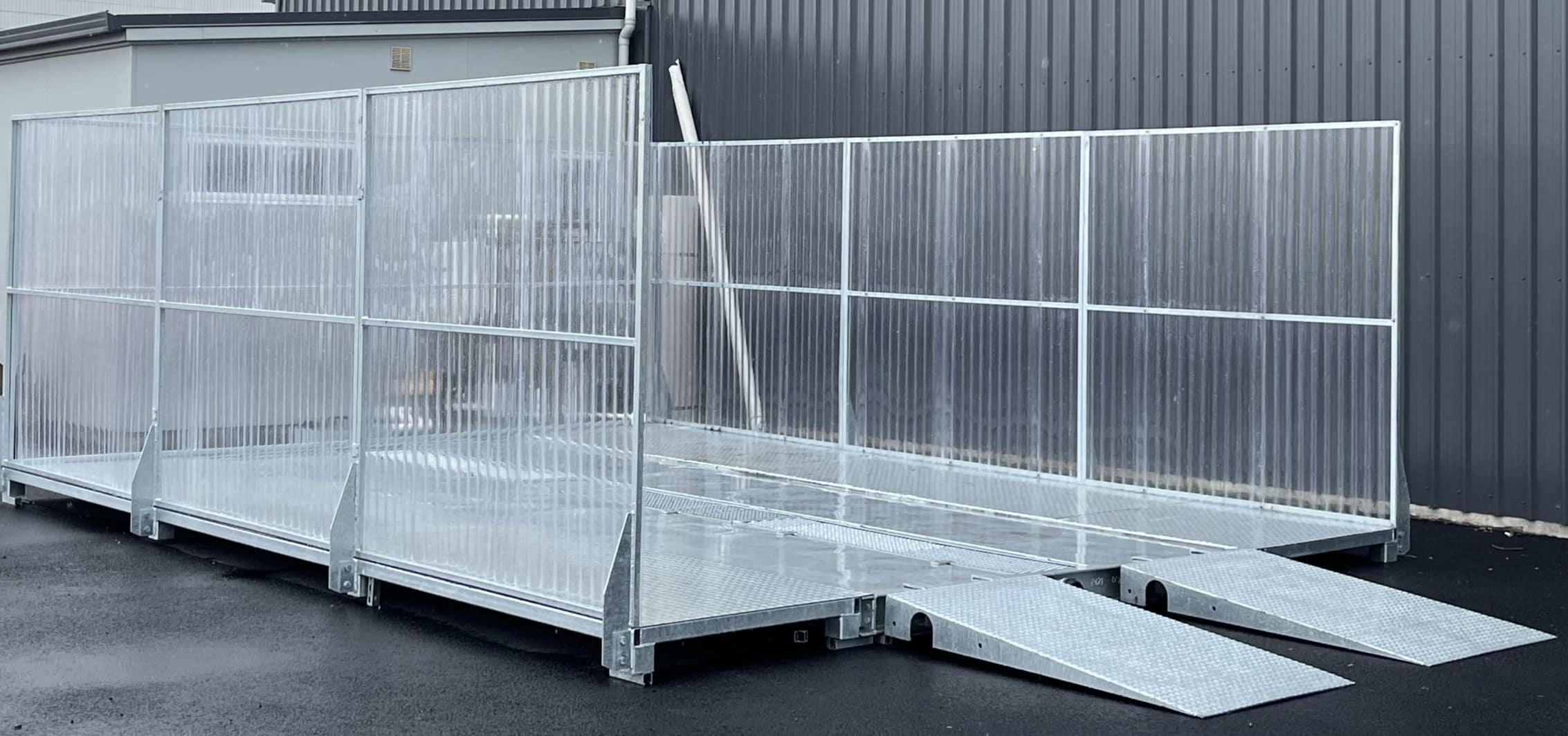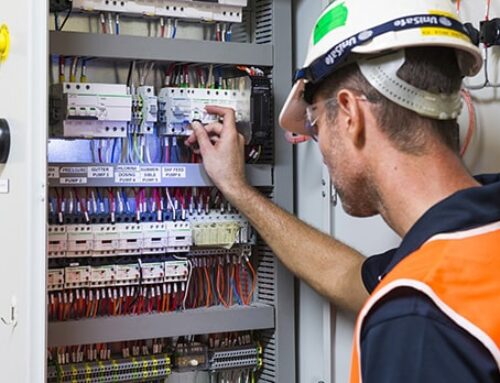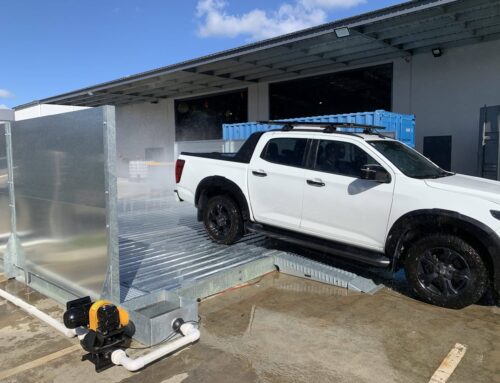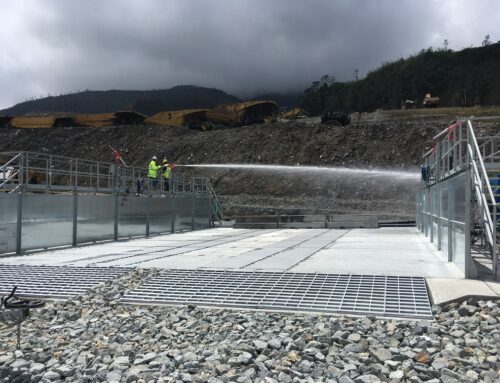How Long Does It Take to Set Up a Portable Wash Bay?

Portable wash bays can be fully operational in as little as 5 to 20 business days, depending on the level of customisation, site readiness, and environmental compliance requirements. This rapid turnaround appeals to operations managers looking to take control and reduce downtime, especially in mining, transport, equipment hire, and automotive industries.
Struggling with the case of inefficient wash systems causing downtime? You need custom solutions, not one-size-fits-all. EnviroConcepts’ portable wash bay systems are designed for quick setup without sacrificing quality, compliance, or durability. Discover custom wash bays made right here in Australia—engineered to handle your exact environmental, vehicle, heavy equipment, water treatment, spill control, wheel wash, and waste control needs. Contact EnviroConcepts today!
Step-by-Step Timeline: From Order to Operation
Understanding the full deployment process of wash bays helps businesses anticipate timelines and avoid the case of unexpected delays. Here’s a standard setup timeline:
| Step | Task Description | Estimated Time |
| 1. Consultation & Quotation | Site assessment, needs analysis, system quote | 1–2 days |
| 2. Design Finalisation | Confirm dimensions, flow rates, tank needs | 1–3 days |
| 3. Manufacturing | Standard unit: 1–5 days, Custom: up to 4 weeks | 1–20 business days |
| 4. Delivery | Transport to site (local or remote) | 1–3 days |
| 5. Installation | Assembly, plumbing, bunding, safety checks | 1–2 days |
| 6. Compliance Sign-Off | Trade waste, council, EPA where applicable | 1–5 business days |
Portable wash bays from EnviroConcepts are solutions designed with modular, plug and play components and equipment that reduce onsite installation time. These portable wash bays eliminate the need for civil construction, making them ideal solutions for leased sites or in the case of projects with urgent deployment schedules.
What Affects Setup Time for Portable Wash Bays?
Several variables can affect how fast a wash bay system becomes operational:
Type of System
Standard wash bays with common configurations can be shipped immediately. Customised solutions with unique pad sizes, bunding, spray curtains, water treatment systems, wheel wash systems, spill control solutions, or underbody wash features take longer due to additional design and fabrication steps.
Site Conditions
If the site already has access to drainage, containment, holding tanks, and an electrical supply, installation of the wash bay system is faster. Otherwise, preparation may include trenching, bunded containment zones, or installing separate equipment like oil water separators, which adds time.
Compliance Requirements
Businesses discharging wash water into sewer lines require trade waste permits, spill control systems, and compliant water treatment systems. These may include an oil water separator, grease trap, solids filtration, or wastewater recycling units—all of which may require inspection and certification.
Accessibility and Location
Remote mining and industrial sites, or those with poor access, may experience delivery delays. Inclement weather may also affect the installation of pads or ramps on unsealed ground.
Site Preparation: What Needs to Be Ready Before Arrival
Proper site preparation shortens the wash bay installation time and ensures full operational capacity. Here’s what needs to be considered:
- Flat, level surface (concrete or compacted ground)
- Access to power and water supply
- Drainage plan for wash water control and spill containment
- Holding tanks, containment units, water treatment systems, or a connection point for the discharge of wash water, oil, and other waste
- Environmental protection measures such as bunding, oil water separators, and silt traps
Pre-planning for trenching, bunded pads, oil water separators, water treatment systems, and control units ensures the installation team can complete works without disruption. If you’re installing a system with automatic pumps, grease traps, or solids screens, allow access for plumbing and electrical connections.
How to Speed Up Your Wash Bay Installation
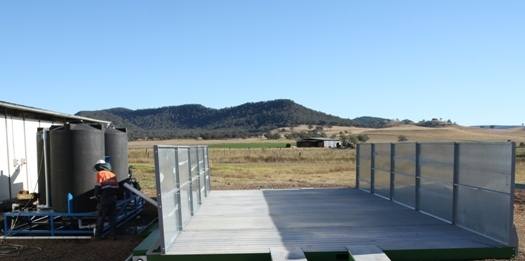
There are multiple ways to accelerate the delivery and deployment process of wash bays without compromising safety or standards:
- Use pre-engineered, modular designs: Systems are delivered as plug and play units requiring minimal on-site assembly.
- Pre-select add-ons early: Predefine your needs for underbody wash, wheel wash, bunding, water recycling, water treatment, spill control, or hot water pressure to prevent delays.
- Contact and engage local, Australian-based manufacturers: Avoid overseas shipping delays for your wash bays and gain immediate support for compliance and emergency servicing.
- Prepare the site in advance: Have bunded areas, storage zones, tanks, and other equipment positioned before delivery.
- Include compliance in planning: Contact and work with a supplier who handles trade waste permit requirements and ensures environmental approval.
With EnviroConcepts, you can contact us and request a quick delivery quote online, customise your pad size, and have it delivered across Australia from our facility. This allows for rapid mobilisation at workshops, vehicle yards, and construction depots.
Setup Time Expectations: Real Examples and Durations
Based on thousands of system installations, portable wash bays typically fall within the following timelines:
- Standard wash bays (cars or 4WD): 3–5 business days for delivery and installation
- Heavy duty truck wash system: 5–10 business days if stock model is used
- Custom mobile mining wash bays: 2–4 weeks fabrication + 3–5 days installation
- Full wash water recycling system with oil water separator and bunding: Up to 20 days including environmental and regulatory compliance testing
Factors like bunded pads, chemical-resistant coatings, spray curtains, and oil water separator installation will increase time but improve system performance, safety, and lifespan.
Rapid Deployment: Pros, Pitfalls, and Lessons Learned
Portable wash bay deployment offers many benefits, but also requires planning. Consider these trade-offs:
Benefits:
- No excavation or permanent infrastructure required
- Reduced costs on labour and project delays
- Fully relocatable, great for leasehold or temporary sites
- Designed for fast setup and efficient maintenance
Pitfalls to avoid:
- Incomplete site preparation leads to the case of last-minute changes
- Non-compliant discharge can delay council approvals
- Low-quality wash bay imports may cause failures, leaks, or rejected permits
Lessons:
- Always opt for modular, compliant wash bays with local support
- Match holding tank sizes to heavy equipment and vehicle throughput to avoid overflow
- Include equipment like filters or separators for solids and chemicals early in design
Compliance Factors That Can Affect Installation Speed
The case of environmental and regulatory compliance is non-negotiable in Australia. Portable wash bay systems that include proper wastewater treatment components reduce red tape and avoid delays.
Common compliance requirements include:
- Oil water separator or filtration system
- Trade waste permit for sewer discharge
- Bunds and spill control to protect stormwater drains
- Wash water recycling systems and treatment systems to reduce consumption
- AQIS and environmental discharge standards for washdown of agricultural or mining vehicles and heavy equipment
Delays typically occur when councils request evidence of water quality standards or site spill containment features like bunded pads or retention pits. EnviroConcepts’ systems are designed to help businesses meet these requirements from day one.
FAQs: Portable Wash Bay Setup Time & Speed
How long does it take to receive my wash bay after ordering?
Standard modular systems can be shipped within 2–5 business days. Custom builds may take up to 4 weeks.
Do I need council approval to install a wash bay?
If you plan to discharge to sewer, yes. Council trade waste permits and water quality compliance are required.
What’s included in a typical system?
Modular pads, ramps, bunding, separators, water recycling units, holding tanks, spill control systems, pumps, wheel wash, and filtration equipment.
Can I install a system on an unsealed site?
Yes, using ground sheets or bunded containment systems.
How quickly can a wash bay with a wheel wash and spill control system be installed?
Standard modular bays with wheel wash and spill containment can be delivered and installed in 5–10 business days. Custom solutions with advanced treatment systems may require 2–4 weeks.
How do I know if my site is ready?
We provide a full site preparation checklist and engineering support.
Can the wash bay include a wheel wash system for heavy vehicles?
Yes. Wheel wash systems can be pre-installed or added as part of the initial design. Including this feature early helps avoid delays in the bay setup of portable wash bays.
Do I need a spill response plan when installing a portable wash bay?
Yes. A proper spill response plan ensures faster compliance approval. EnviroConcepts integrates spill control and treatment features into the system, so installation time isn’t increased by last-minute changes.
3-Step Fast Deployment Process
| Step 1 | Step 2 | Step 3 |
| Request Your Quote: Online or via phone | Customise Your Solution: Pad size, separator, bunding, and more | Install & Operate: Delivered Australia-wide and set up in under 5 days |
Get Up and Running Faster with a Custom Wash Bay Built for Your Operation
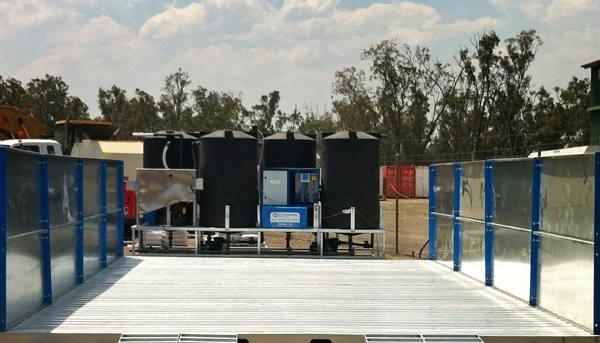
Need to get operational fast? EnviroConcepts offers high-quality, modular portable wash bay systems manufactured in Australia and designed for compliance and durability. Avoid downtime, equipment failure, fines, or costly retrofits by choosing a supplier who understands the heavy duty demands of your industry.
Contact us today to discuss your custom wash bay system and get a tailored quote. Delivery and service available Australia-wide.

